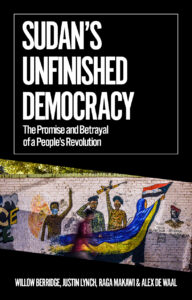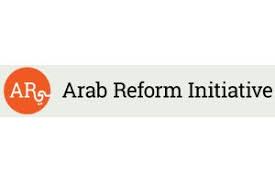The violence in Khartoum, which began as Sudan attempted to transition to democracy, already has killed hundreds of people and left millions trapped in urban areas, sheltering from gunfire, explosions and looters,
 The conflict should be seen as “the first round of a civil war,” wrote Tufts University’s Alex De Waal, co-author of Sudan’s Unfinished Democracy. “Unless it is swiftly ended, the conflict will become a multi-level game with regional and some international actors pursuing their interests, using money, arms supplies and possibly their own troops or proxies.”
The conflict should be seen as “the first round of a civil war,” wrote Tufts University’s Alex De Waal, co-author of Sudan’s Unfinished Democracy. “Unless it is swiftly ended, the conflict will become a multi-level game with regional and some international actors pursuing their interests, using money, arms supplies and possibly their own troops or proxies.”
Egypt vs. democracy
“In Middle Eastern politics, the line in the sand is very clearly between Islamists and secularists, often represented by the military,” says Mai Hassan, an associate professor of political science at M.I.T. “I’ve always wondered why that wasn’t the case in Sudan, and why the Egyptian Army, which is supposedly very, very anti-Muslim Brotherhood, is supportive of the SAF,” she tells The New Yorker’s Isaac Chotiner:
Part of it is just camaraderie—they know them, they trust them, there are soldiers who trained in Egypt, and they run joint military exercises. The deeper issue is probably Realpolitik—that Egypt cares a lot about who is running its southern border. Egypt doesn’t want a democracy in the country. …. It’s probably some amalgamation of it thinking that the SAF could probably do a better job of insuring that democracy doesn’t come, and securing Egypt’s real interests.
 Various Arab states, especially Gulf monarchies in Saudi Arabia and the United Arab Emirates, have helped sponsor the anti-democratic backlash. It’s a sign both of enduring interests — a fear of instability and spillover threats to their monopolies on power at home — as well as the shifting geopolitical sands of the region, The Washington Post’s Ishan Tharoor observes:
Various Arab states, especially Gulf monarchies in Saudi Arabia and the United Arab Emirates, have helped sponsor the anti-democratic backlash. It’s a sign both of enduring interests — a fear of instability and spillover threats to their monopolies on power at home — as well as the shifting geopolitical sands of the region, The Washington Post’s Ishan Tharoor observes:
Now, Saied’s Tunisia seems a stepchild of the bad old order, the latest iteration of what Nadim Houry, executive director of the Paris-based Arab Reform Initiative, described as an “authoritarian restoration” that got underway in the years after the Arab Spring. Saied is pushing through a “striking process of detransition” from democracy, Houry told me.
Indeed, the coercive threat of Arab autocracies even reaches into the West, Tharoor adds:
A recent report by the Freedom Initiative (below), a nonprofit rights organization, found that Egypt and Saudi Arabia — U.S. allies — have deployed a whole tool kit of repression to intimidate and silence dissidents even on U.S. soil. …. Arrayed against this status quo, protesters and pro-democracy activists can’t be faulted for feeling pessimistic. But the conditions for future upheaval are as present as ever.
 Dr. Rima Majed discusses her new co-edited volume, The Lebanon Uprising of 2019: Voices from the Revolution, with Ramzi El Habre, POMED’s Program Coordinator for Civil Society Partnerships. Majed examines why Lebanon’s historic 2019 uprising failed to achieve its revolutionary goals of dislodging the country’s corrupt ruling elite. The answer, she suggests, lies in the country’s absence of organized popular movements, such as labor unions, that possess the social base, mobilizing power, and unified goals needed to achieve systemic political change.
Dr. Rima Majed discusses her new co-edited volume, The Lebanon Uprising of 2019: Voices from the Revolution, with Ramzi El Habre, POMED’s Program Coordinator for Civil Society Partnerships. Majed examines why Lebanon’s historic 2019 uprising failed to achieve its revolutionary goals of dislodging the country’s corrupt ruling elite. The answer, she suggests, lies in the country’s absence of organized popular movements, such as labor unions, that possess the social base, mobilizing power, and unified goals needed to achieve systemic political change.
“The state knows very well which type of civil society is a threat to it, and they got rid of it,” Majed says. “So if we really want to think of a role for civil society, we need to think of how we can rebuild the civil society organizations that the state wants to decimate.”
Broken social contracts
“On the surface, it may look like we are back to the future … but the authoritarian restorations are on very thin ice,” the Arab Reform Initiative’s Houry tells The Post’s Tharoor, pointing to enduring economic dysfunction and frailty in countries like Tunisia and Egypt. “The broken social contracts which led to the Arab uprisings are even more exposed today.”







